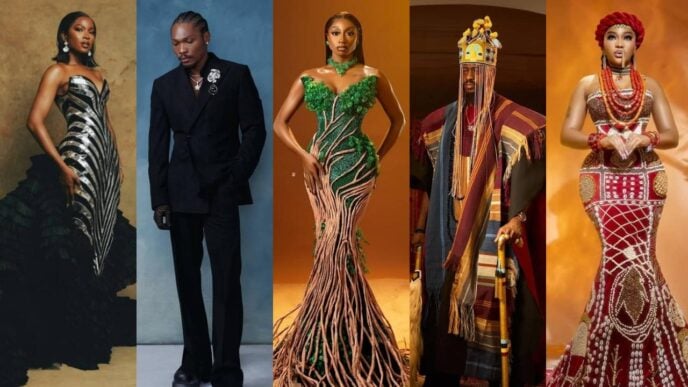JAMB adopts 140 as minimum cut-off mark for university admission
BY OGUNGBILE EMMANUEL OLUDOTUN
There was a time when the aspirations of the average Nigerian student were shaped by doctors, engineers, lawyers, and scholars. Today, those aspirations are being replaced by ring lights, trending sounds, and viral dance challenges. With over 1.5 million candidates, about 78 per cent of those who sat for the 2025 Unified Tertiary Matriculation Examination (UTME), scoring below 200 out of 400, it is becoming clear that we are in the middle of a quiet cultural collapse: one where the pursuit of clout has overtaken the pursuit of knowledge.
According to data released by the Joint Admissions and Matriculation Board (JAMB), only 12,414 candidates (0.63%) scored above 300 out of 400. Just 22 per cent (420,415 candidates) scored above 200. The rest, nearly 1.53 million candidates, scored below 200, many even falling under 140. These numbers are not just low; they are catastrophic. JAMB exams, the gateway to Nigerian universities and higher institutions, are no longer just academic hurdles. They have become mirrors reflecting how deeply distracted and disoriented the average Nigerian teenager has become.
So, where are students putting their energy today? On TikTok, Instagram Reels, Snapchat stories, and X trends. Take Peller, for instance, one of the most influential young adults in Nigeria and a self-acclaimed TikTok King. He’s a comic figure whose content is wildly popular, though not exactly polished in grammar or formal language. Despite holding just a school certificate, Peller commands the kind of influence that many bank managers or CEOs in Nigeria could only dream of. With over 10 million followers, viral fame, endorsement deals, and regular appearances alongside governors, celebrities, kings, and queens, Peller has become a cultural force.
Advertisement
But here’s the concern, not with Peller himself, but with how his story is perceived. To many young people, his rise suggests that you don’t necessarily need to read, write well, or pass JAMB to be successful. Just go viral. And truly, it’s hard to fault their logic. Peller’s story offers hope, especially to teenagers who see education as a means to financial freedom. If someone with minimal academic qualifications can achieve so much, then why stress over books and exams?
This isn’t criticism, it’s context. Peller’s journey is valid, his hustle admirable. But when his success becomes the template for millions of students, it raises a question: Are we raising a generation that chases visibility over value, and fame over foundational learning?
Across secondary schools and university campuses, TikTok has become a second home. Students spend hours rehearsing dance trends, lip-syncing skits, or mimicking comedians. Reading culture? Gone. Book clubs? Replaced by comment sections and live streams. Teachers are competing with influencers. Exams now interrupt content calendars. The algorithm doesn’t reward academic excellence. It rewards attention. And that’s what students are chasing, validation through virality.
Advertisement
When students begin to model themselves after personalities who’ve never needed to pass an exam, we have a crisis. When education no longer translates to influence, why should they bother? We are now producing students who can trend on social media but can’t write a formal sentence; Students who know the latest TikTok slang but can’t summarise a passage or students who are fluent in skits but failing in school. This isn’t just about bad results. It’s about a generation losing touch with critical thinking, long-term planning, and intellectual growth. We are watching the collapse of deep reading and reflective thought, replaced by 60-second dopamine bursts.
Social media isn’t inherently evil. But overuse and unregulated influence is. Teenagers now suffer shrinking attention spans, sleep deprivation, body-image anxiety, and mental health issues, fuelled by endless scrolling and digital comparison. In many cases, fame is achieved by exaggerating flaws. Bad grammar becomes a brand. Ignorance becomes entertainment. And failure becomes funny. But there’s nothing funny about a generation that can’t read, reason, or write. Are they the same people you expect to become lawmakers or policy makers?
What must change? We must fix the value system. Fast. Schools must introduce media literacy education. Parents must monitor screen time and promote balance. Platforms like JAMB should launch academic influencer campaigns, to make reading trend again. Governments should fund youth programmes that celebrate intellectual achievement the same way they fund sports and entertainment.
Again, neither Peller nor many of these social media celebrities are the villains. They are simply reflections of a society that has shifted from rewarding excellence to idolising visibility. The real question is: who are we celebrating? Because who we celebrate ultimately shapes who we become. In the end, we are raising influencers who cannot influence the future. And in this digital age, the real test is not just the UTME, It’s whether this generation can still read, think, and lead.
Advertisement
Ogungbile Emmanuel Oludotun can be contacted via [email protected]
Views expressed by contributors are strictly personal and not of TheCable.












